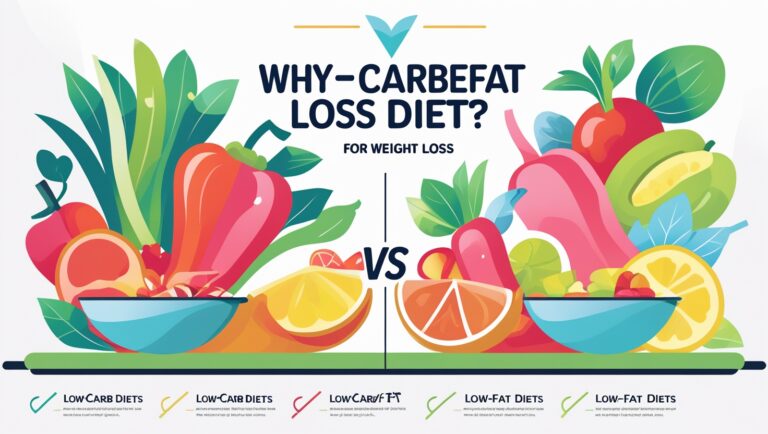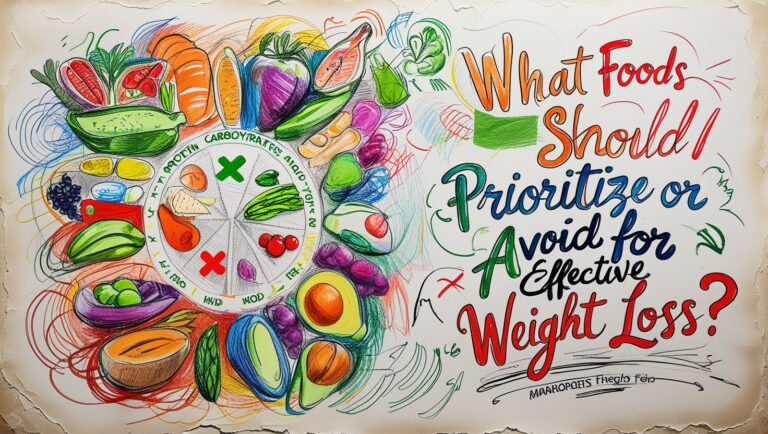
1. The Problem with Traditional Diets to Lose Weight
The problem is that diets tend to be too restrictive to Lose Weight, trying to squelch hunger, and at best difficult to maintain for long periods. But worse than this, you’ll probably end up gaining more weight than you lost once you go off your diet because your body has the tendency to “bounce back” to its previous weight.
There are several reasons why diets tend to fail:
Deprivation mindset: Dieting typically creates a deprivation mindset that leads to rearing up strong cravings and binge eating.
Short-term orientation: Diets are considered to be relatively short term, not as a lifestyle.
Metabolic adaptation :Heavily restricting calories can cause your body to adapt to the diet by slowing down the metabolism so that one is likely to gain back weight in a very long time.
Nutritional imbalance: There is a restriction of access to some essential nutrients while dieting that causes havoc on your health as well as energy.
These point to the need to focus on sustainable, lifelong habits rather than quick fixes. A holistic approach will found a foundation for weight loss that’s healthy, enjoyable and effective.
2. Mindful Eating: A Key to Sustainable Weight Loss
Mindful eating is the most crucial tool that one might use to be able to lose weight without sticking to a diet. It lets you be hyperattentive about what you are eating and why you are eating, in addition to the modality of eating you might apply in the process.
Mindful eating is enjoying your food as you eat, so you are aware of your slowing down and enjoyment without losing track of your food.
Mindful eating is asking you to focus on the taste, texture, and satisfaction of every bite rather than mindless consumption of meals before the TV or while scrolling on your phone.
Here are some practical steps to adapt to mindful eating:
- Respond to hunger cues: Only when you feel hungry, eat. Also, stop once you’re satisfied. Learn how to distinguish between actual hunger and emotional or conditioned eating.
- Eat slowly: Eat more slowly. If you rush to finish your food, your brain won’t have a chance to receive signals about fullness, and therefore overeating is avoided.
- No multitasking: Eat, just eat. It brings more awareness to food and makes dining more enjoyable.
- Savor each bite: Be conscious of the flavors, aromas, and textures while you are eating. This may give you a feeling of fullness that will not allow you to have an overwhelming urge to consume more than required.
Advantages of Mindful Eating
Research has actually indicated that the people with mindful eating are less likely to overeat or gain excess weight, which can be implemented mostly because you give the body time to be satisfied when you remove distractions and slow down while eating.
Mindful eating also develops a more healthy relationship with food inside you. It will make you much more aware of your body’s need thus making decreases emotionally eating and binge behaviors often due to stress or boredom.
3. Increase Your Physical Activity Without Needing a Gym
No matter how important exercise is when trying to lose weight, the reality is that you don’t have to spend a whole lot of hours in the gym. Most importantly, you’ll want to find things you like so that movement becomes an enjoyable habit in your life. Here are some simple ways you can add more physical activity to your day:
- Move more: Walking is one of the easiest and most effective exercises there are. Simply walk more throughout your day by taking the stairs, parking farther from the intended destination, or going for a 10-minute walk after eating.
- Take breaks and move: If you have a sedentary job, take breaks every hour to stand up and stretch. These little breaks can add up to huge amounts of calorie expenditure over time.
- Have fun doing it: Dance, hike, swim, or bike–find an activity that you enjoy doing. That way, exercise won’t be something you dread doing.
- Strength training: Body weight squats, push-ups, and resistance bands are light resistance exercises that can be used in order to create lean muscle mass, thus enhancing the metabolism and helping the body to burn fat.
Non-Exercise Activity Thermogenesis (NEAT) Contribution
This is called non-exercise activity thermogenesis, or NEAT, and it’s a measure that accounts for calories burned through activities like walking, cleaning, gardening, and even fidgeting. Increasing your NEAT can have a huge effect on your daily energy expenditure without necessarily doing structured exercise sessions. For instance, choosing to stand rather than sitting or pacing around while on the phone can easily contribute to weight loss over time.
4. Sleep: The Most Easily Neglected Weight Loss Factor
Sleep is one of the crucial but often neglected factors of Lose weight management. Several studies have shown that bad-quality sleep and insufficient good-quality sleep are related to weight gain and ineffective fat loss.
Weight Loss and Sleep
- Hormonal balance: Lack of sleep affects the mechanisms of hunger, which involve two major hormones: ghrelin and leptin. The ghrelin provokes the sensation of hunger in a person, while leptin stimulates the sensation of fullness. If the body does not receive adequate sleep, then its ghrelin levels increase while the levels of leptin decrease, thereby creating a mechanism whereby the body will feel the urge to eat more.
- Metabolism: The body, due to a lack of sleep, slows down its metabolism. This means that it is now becoming hard for the body to metabolize calories as well as burn fat effectively.
- Stress response: No sleep triggers the production of cortisol, which is the stress hormone that encourages fat storing-increase and deposits in areas of the abdominal.
- Cravings and decision-making: The judgment power is disrupted, and high-calorie foods with a lot of sugar and fats are maximized. You will also look to have comfort food when sleep-deprived.

Improving Quality Sleep
Support your weight loss efforts with sleep of 7-9 hours in quality. Here are some ways to improve sleep hygiene:
- Bedtime Routine: Before bed, relax with a book or by sitting in a warm bath or meditation practice.
- Minimize screen time: Avoid use of any electronic equipment at least one hour before sleeping because the blue light produced by the screens hampers the production of melatonin, the sleep hormone.
- Maintain a sleep-friendly environment: Keep the bedroom silent, dark, and cool.
- Establish a regular sleep schedule: Try going to bed and waking up at the same time each day, including weekends, in order to help your body clock normalize.
- Reduce Stress for the Success of Losing Weight
Stress disrupts weight loss. It elevates levels of cortisol; this stimulates eating emotionally, which may lead to increased cravings for unhealthy foods to Lose Weight, and increases appetite for foods that are known to elevate your cortisol level. Elevated levels of cortisol lead to fat storage in the abdominal section of the body.
A common reaction to emotional stress is the increase in eating through stress. Your body releases cortisol when you are feeling stressed, which triggers increased hunger and cravings for comfort foods such as sweets and fatty snacks. Although they may provide temporary relief, these foods often result in weight gain in the long run.
Stress Control
Finding some healthy ways to cope with stress is crucial, not just for your well-being but also for your success in losing those unwanted pounds. Here are some of the effective ways of managing stress:
- Mindfulness and meditation: Meditation or mindfulness exercises can reduce stress and increase your emotional strength. Even a few minutes of deep breathing or guided meditation can lower cortisol levels.
The following are some examples of how to overcome stress:
Practice physical activity. Exercise is a stress reliever. Endorphin levels are boosted for natural endorphin release through physical activity.
Self-remedy. Taking time to do things you enjoy such as reading, drawing, or sitting in nature can help reduce your stress level. - Connect with others: There is so much in managing stress by getting in touch with family, friends, or support group to talk over problems and share enjoyable times.
6 Hydration: Hydrate to Lose Weight
Hydration is key to your overall health and weight loss. Water helps jumpstart your metabolism, suppress your appetite, and ease digestion.

Hydration Benefits
- Appetite regulation: Sometimes, people mistake thirst for hunger. Drinking a glass of water before meals will deter overeating and keep the portions within control.
- Boost in metabolism: Drinking cold water will temporarily increase metabolism since the body needs to use energy to warm the water up to body temperature.
- Ease digestion: You will be hydrated, and your digestive system is in good condition. All this translates to no bloating and no case of constipation.
- Better exercise performance: Hydration is the key for physical activity. When your body is full of fluids, you perform better. This gives you the capacity to engage in more effective workouts.
Tips for Staying Hydrated
- Carry a water bottle with you throughout the day.
- Add a slice of lemon or cucumber for flavor if plain water seems boring.
- Drink a glass of water before each meal in order to help control portions and not overeat.
- Eat more whole foods and high-fiber foods
Ditch the restrictive dieting mentality and start embracing the concept of including more whole, unprocessed foods in your diet. People who consume a lot of fruits, vegetables, lean proteins, and whole grains naturally tend to eat fewer calories and more nutrients for weight loss.
Why You Need Fiber
Fiber is one of the reasons for weight loss: it fills you up and equalizes your digestive system. All those high-fiber foods – vegetables, fruits, legumes, and whole grains – are filling, and they stabilize blood sugar in a way that cancels out spikes and crashes that can trigger cravings.
Start with high-fiber breakfasts, for example, oatmeal or



